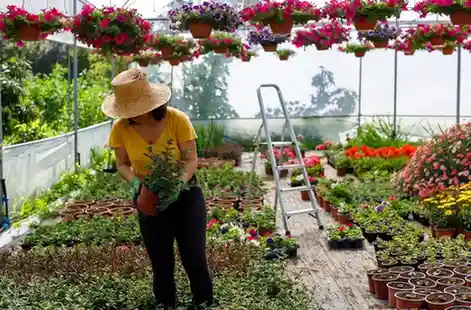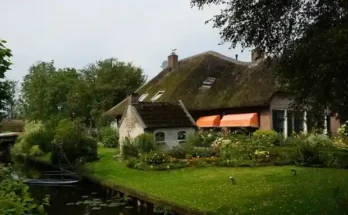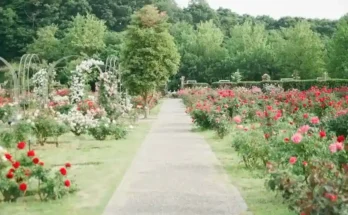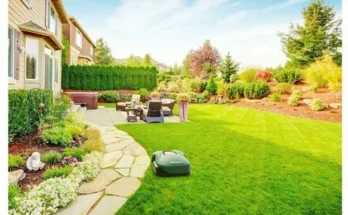More Than Dirt and Leaves:
A garden is more than just a patch of land with flowers or vegetables. It’s a quiet rebellion against chaos, a sanctuary for reflection, and a personal canvas painted with living colors. Every seed planted is a small act of hope, a whisper to the earth saying, “I believe in tomorrow.”
In today’s fast-paced world, where screens dominate our vision and time feels like a luxury, gardens offer a rare invitation: slow down, breathe, and grow something with your own hands. A garden isn’t just a hobby—it’s a practice in patience, a lesson in surrender, and an unexpected path to inner peace.
The History Rooted Beneath Our Feet:
Before cities, before skyscrapers, before schedules—we were gardeners. Tending the land is one of the oldest human activities, and in many ways, it’s what grounded us to time, season, and sustenance.
- Ancient Gardens and Their Stories
From the lush, symbolic gardens of Persia to the structured elegance of Japanese Zen gardens, humans have always turned to nature not just for food but for meaning. In Egyptian tombs, gardeners were depicted lovingly among papyrus and fig trees. In medieval monasteries, gardens were designed not only for medicine and food but also for prayer.
These weren’t random plots of land. They were deeply intentional, designed to reflect beliefs, needs, and harmony with nature. You can read more about the fascinating history of gardening and its influence across cultures.
- The Modern Garden Revival
Fast-forward to the 21st century, and gardens are no longer just for the countryside. Urban balconies bloom with herbs, rooftop gardens sprout among high-rises, and community gardens are revitalizing neighborhoods. It’s a renaissance rooted in a craving for connection—to nature, to nourishment, and to something real.
Gardening today isn’t about perfection. It’s about authenticity. Dirt under your nails, a tangle of wildflowers, a tomato ripened by your care—these are the new status symbols of a generation seeking simplicity in complexity.
Gardening for the Soul:
What starts as physical work often becomes emotional nourishment. As you tend your garden, you tend yourself—learning patience, grace, resilience, and celebration.
The Therapy of Growing Things
Studies show gardening reduces cortisol (stress hormone), lifts mood, and fosters mindfulness. For a clear explanation of these mental health benefits, see Healthline’s guide on gardening and wellbeing That tiny plant breaking through soil isn’t just life—it’s hope, grounding, and inspiration all at once.
- The Power of Presence
Gardening demands presence. You can’t rush a plant to bloom. You can’t force a flower to open. The rhythm of the garden becomes your rhythm. You find yourself noticing things you once ignored: the way sunlight shifts at noon, how bees hum near lavender, how soil smells after rain.
And in that presence, you find something rare: peace.
Building Your Own Eden:
You don’t need acres of land or professional tools to start a garden. You only need a willingness to grow. Whether you have a windowsill or a backyard, the magic is the same.
- Choosing Your Garden’s Purpose
Some gardens are practical—full of vegetables, herbs, and fruit. Others are poetic—wildflower meadows and curated color palettes. And many are both, blending the useful with the beautiful.
When starting, it helps to ask: What do I want this garden to give me? Is it food? Beauty? Privacy? A quiet space to think? There are no wrong answers, only the beginning of a relationship with nature on your own terms.
- Letting Go of Perfection
The most enchanting gardens aren’t perfect. They’re a little wild, a little uneven, a bit messy—and completely alive. Gardening is as much about surrender as it is about structure. Plants won’t always do what you expect. Pests will come. Weeds will win some battles.
But the imperfections are part of the story. Every challenge in the garden teaches resilience. Every bloom is a reward.
The Garden as a Living Ecosystem:
A garden isn’t just about plants—it’s about life. It’s a stage where insects, birds, microbes, and even you play interconnected roles. When done with care, a garden becomes its own little ecosystem, buzzing with biodiversity and balance.
- Inviting Pollinators and Life
Bees, butterflies, ladybugs, earthworms—these are the unsung heroes of your garden. Inviting them with native plants, wildflowers, and organic practices transforms your space into a thriving micro-habitat.
By gardening naturally, you become a guardian of the environment, contributing to pollinator health, soil restoration, and even climate resilience in small, meaningful ways.
- Composting and Returning to the Earth
One of the most powerful practices in gardening is composting—taking your scraps, waste, and clippings and transforming them into rich soil. It’s a full-circle process that teaches a vital lesson: nothing is wasted in nature.
In a world obsessed with consumption, gardening reminds us that giving back is just as important as taking.
The Joy of Eating What You Grow:
Few things compare to the taste of a tomato still warm from the sun or a sprig of mint crushed fresh into your water. Growing your own food—even a single herb—is a form of empowerment.
- From Soil to Table
When you grow your own produce, you reconnect with where your food comes from. You respect it more. You waste less. You appreciate the journey from seed to plate, and that appreciation changes your relationship with consumption.
You’re no longer just eating. You’re celebrating.
- Gardening as an Act of Sustainability
Growing food, even in small amounts, reduces your carbon footprint. It cuts down on packaging, transport emissions, and chemical exposure. It also supports a mindset of self-reliance and sustainability, two qualities increasingly vital in an uncertain world.
Your garden becomes not just a personal sanctuary, but a small revolution against waste, dependency, and disconnection.
Gardens as Legacy:
Gardens are more than a seasonal pleasure. They’re a legacy. When you teach a child to plant a seed, you’re passing on more than a skill. You’re handing over a story of stewardship, patience, and care.
- Memories Rooted in the Soil
Many of us have childhood memories tied to gardens—a grandparent’s roses, a parent’s vegetable patch, a favorite tree. These are not just memories of plants. They’re memories of people, of love, of time well spent.
Gardening is one of the few acts that still connects generations. In a digital world, it’s a way to keep stories alive in the soil.
Conclusion:
In the end, the most beautiful thing your garden grows is you. Every leaf, every bloom, every failed seed and unexpected blossom mirrors your journey. Gardens are not static—they evolve, change, surprise, and return. Just like us.
So dig your hands into the dirt. Water your intentions. Sit among your flowers. There is no right or wrong way to garden—only the act of showing up, again and again, with open hands and a willing heart.
In a garden, every day is a new beginning. And sometimes, that’s exactly what we need.




